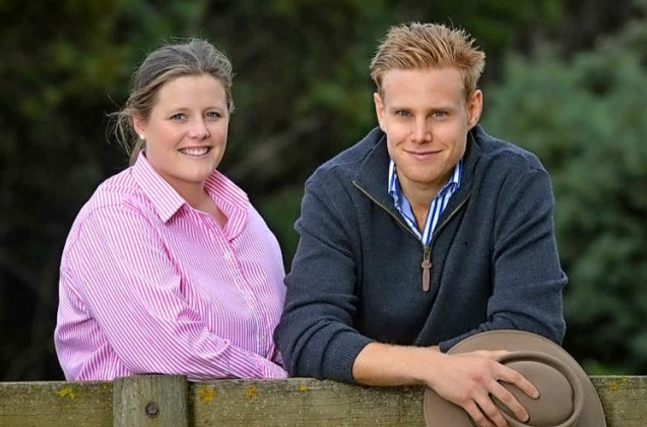
Entrepreneur: noun, a person who sets up a business or businesses, taking on financial risks in the hope of profit.
Contrary to what some people might think, entrepreneur is not a dirty word. Entrepreneurs oil the wheels of industry that drive economies and all that goes with them: jobs, taxes, investment … and now, a revolution that’s transforming the way we think about life on the land is being led by the agri-preneur.
This quiet economic upheaval is affecting the whole country, certainly Geelong, with overseas investors hungrily eyeing Australia. This boom is in agriculture, and agribusiness ventures.
Few people realise that more than a third of Geelong’s manufacturing is in agribusiness – 37 per cent. Not the heavy-metal rust belt manufacturing you might expect but, rather, farm-related operations. Think food processing, seafood, dairy and nurseries, poultry, piggeries, grains and other similar such enterprises. Already, they employ at least 10,000 people regionally and turn a tidy $2.7 billion plus a year. And industry pundits say there’s plenty more where that came from.
It’s being called the boom to replace the jaded, faded mining boom, and opportunities seem almost boundless. Largely because farming and agriculture aren’t exactly what they used to be. Far from it, actually.
Geelong is an important quiet achiever in all this through the specialist Marcus Oldham College and its Centre for the Study of Agribusiness (CSA) at Waurn Ponds – located alongside Deakin University and the new Epworth Hospital.
This private college recently trumped all Australia’s other universities to take out first place in student satisfaction in the federal government’s Quality Indicators for Learning and Teaching.
It’s rated by students as the best in the country for its overall education experience and scored tops across teacher quality, learner engagement and student support – all in its first year assessed by QILT.
CSA director Dr Yasmin Chalmers says Marcus Oldham’s agribusiness studies takes agriculture graduates to the next step; teaching them finance, budgeting, business planning and more.
“Many post-graduate students are moving upwards in their careers,” Yasmin says. “They might be in the corporate sector, where leadership, entrepreneurial development, new ventures, developing new ideas, going to that next level of thinking, are needed.
“As you get to the higher years, for instance, we’re looking at relationships with global markets.”
She says the savvy new breed of farm operator might be found working in large corporations, from a bedroom, a small business – oh, yes, and even on the farm. She points to Marcus Oldham events showcasing successful agri-preneurs, bringing them into close networking contact with students, graduates and like-minded folk.
Third-year student Jose Webb, hailing from a Riverina merino and crop farm, is razor keen on a future in meat processing and spent last year, as part of her studies, working with world giant JBS and some of the globe’s leading meat scientists. She sees innovation as a vital and essential part of agribusiness in Australia.
“It’s really interesting what consumers are asking for,” she says. “So it’s grass-fed instead of grain-fed, and I think it’s great people are showing greater interest in where things are coming from.
“It’s leading to people being educated and making sure animals are being treating humanely and with respect. In a program we were working with last year, we had to have lifetime transparency and they couldn’t be contained, they had to be grazed. They couldn’t be fed grain, [so] that takes out the chemicals that are being used growing crops.”
Jose has worked with robotic processing looking at the intramuscular state of carcasses, at ossification levels in bones, to assess animal stress, provide feedback on genetics and determine whether consumer demands are being matched. It’s all about improving quality and providing more consistently reliable product.
Tasmanian Oliver Vidor, another third-year student, is looking more towards the corporate, finance side of agribusinesses. He’s done the legwork on farms in WA, Queensland’s Darling Downs and northern NSW, and wants a bit more mental stimulation so he’s furthering his agriculture diploma credentials already under his belt with a business degree.
“Ideally I’d like to end in a position with the best of both worlds, with on-farm and off-farm exposure, maybe consultancy work, agri-finance,” he says.
“Innovation I see as hugely important. We have a growing population and you see those figures saying we’re going to have to double global food production by 2050 and we’re going to have to do that off a declining land resource. So the writing is on the wall as to what producers will have to do. We’re going to have to push productivity and efficiency and the main way we’ll do that is through innovation and technology.”


